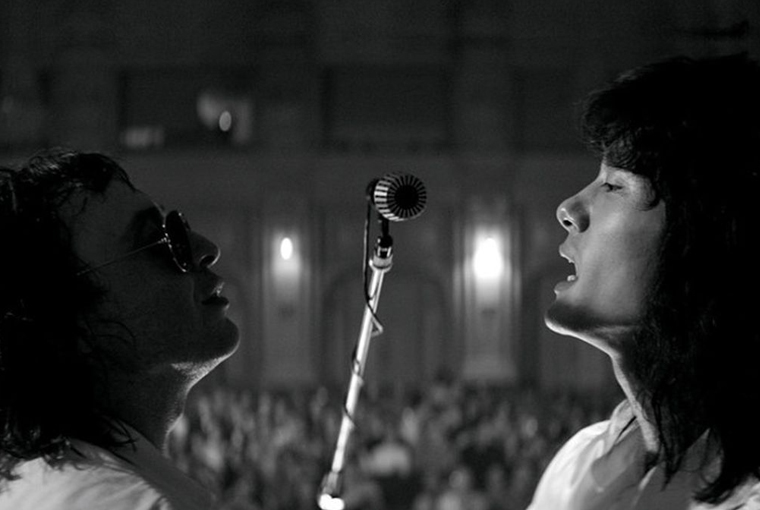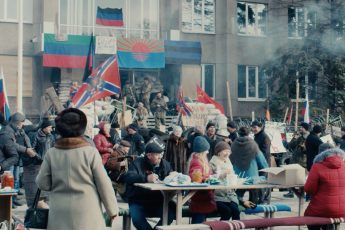
Leto has been met with an unusually warm reaction in Russia. It is partly due, of course, to the trumped-up trial and house-arrest of director Kirill Serebrennikov. For a conscientious critic the idea of criticizing an imprisoned artist in Russia is somehow close to the idea of speaking ill of the dead. But, apart from this, the reaction is often quite sincere, because Leto is a strangely good film, and it becomes even more strange in the context of Russian cinema.
What I have in mind is this quality of Leto that corresponds directly with the word I just used to describe the reaction it has gotten – the film is warm. The cultural and political atmosphere in today’s Russia is so tense and disturbing, filled with such a rampant animosity between all kinds of camps and groups and characterized by such a lack of sane dialog, that a warm film coming from a director under arrest is a strange thing indeed. The view that I myself often share is that in today’s Russia you cannot make a good film without breaking a law, because all subjects worth discussing in today’s Russia are indeed prohibited for discussion.1 Thus, making a cinema lacking of conflict, warm cinema, would mean making bad cinema. I am glad that Leto serves to break this unipolar vision, sending it to the dump of all visions of this kind.
Having accepted – first – the challenge of taking a cult figure of the Russian rock scene as protagonist and thus risking to provoke the discontent of millions of his fans, – second – the challenge of a politically charged theme, the counter-culture movements in Soviet Union, and – third – the challenge of putting all this “serious stuff” into a joyful, almost lighthearted form of oneiric drama with elements of musical and animation –, Serebrennikov came out not just with warmth, but with a subtle and thoughtful film. I would specially note the phantasmagorical aspect of the film that takes the form of dream-like “explosions” of rigid Soviet reality, a Pinnocchio-like tearing of the veil that covers the world of repressed fantasies – a really original and risky director’s finding.
Far from showing us a clichéd, brothel-like, thoughtless life of non-conformist youth spitting insults at the government while lying in a swamp of their own unrecognized greatness, Serebrennikov gives us an image of comradeship and solidarity of people who have not got much hope in the future but still have the decency to resist the fakeness of the surrounding discourse, be it with songs with no “positive message” whatsoever. Maybe the most interesting theme in the film and the most curious element of this milieu that makes it somehow different from the American rock’n’roll generation, English new-wave youth or French soixante-huitards, is the question of marriage and extramarital relations: the original mix of uncompromising straightforwardness – drunken openness – on the one hand, and a kind of old-fashioned, chivalrous chastity, on the other, contributes to the authentic charm of Leto. Serebrennikov succeeded in showing that this generation, deprived of any national rock culture, grown on Blondie and Bowie, had actually found its own voice; that these youngsters imitating foreign looks had their own style.




Leave a Comment